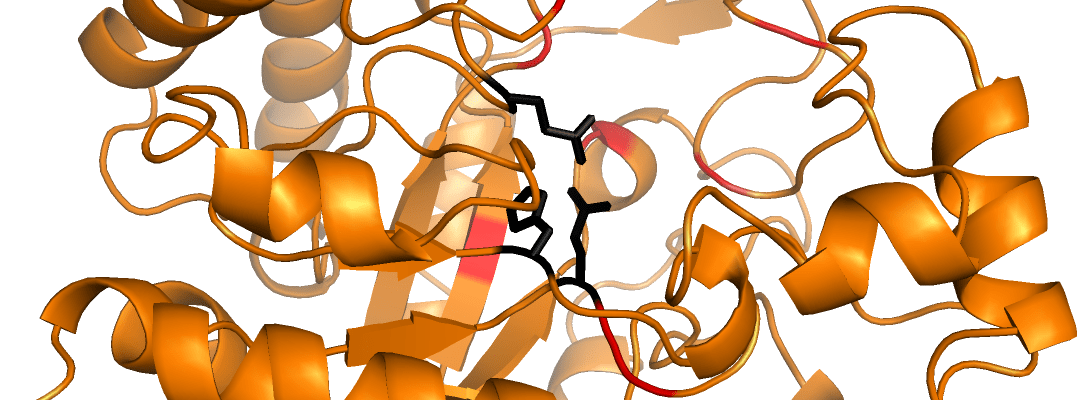|
By Ian MacArthur
A new synthetic peptide may hold the key to curing some of mankind’s most tenacious illnesses. Researchers at the University of Texas Southwestern Medical Center led by Dr. Beth Levine recently synthesized Tat-beclin 1, a molecule that shows promise as a means of developing treatments against cancer, infectious disease, and degenerative neurological disorders. Peptides differ from proteins on the basis of size. Although both are comprised of amino acid chains, peptides are classified as chains numbering 50 or fewer amino acids. Tat-beclin 1 is a 31 amino acid peptide whose demonstrated therapeutic value lies in its ability to induce the cellular process of autophagy. Autophagy is the process by which cells recycle valuable components of large biological molecules to be reused in the synthesis of new molecules. Enzymes help to degrade unused compounds within the cell and then aid in constructing new compounds from the individual recycled components. The process is essential for the maintenance of cellular health as well as the ability of cells to combat various diseases. To study the effects of the peptide on disease resistance, Dr. Levine’s team treated mice with Tat-beclin 1 before infecting them with the West Nile virus and the insect-borne illness chikungunya. The mice treated with the peptide demonstrated increased resistance to such illnesses. Additionally, the team reported that human cells treated with Tat-beclin 1 in vitro were resistant to HIV. The effectiveness of the peptide against HIV in vivo remains to be tested. The Levine group derived the amino acid sequence for Tat-beclin 1 from beclin 1, a protein previously identified by Dr. Levine to be crucial in autophagy. Subsequent research has identified defects in beclin 1 to underlie many types of diseases, and corroborated the importance of autophagy in defending the body against cancer. The disruption of autophagy has been linked to a variety of human health conditions. Besides the onset of infectious disease, autophagy inhibition has been demonstrated to play a role in aging, breast, lung, and ovarian cancer, and degenerative neurological conditions such as Parkinson’s and Alzheimer’s. Thus, the potential for Tat-beclin 1 to be developed into therapeutic agents to combat these maladies is immense. In studies of the effects of beclin 1 expression on Parkinson’s and Lewy body disease, researchers indicated that heightened beclin 1 levels coincided with the degradation of α-synuclein, the protein whose cellular buildup is closely associated with these disorders. It stands to reason, then, that the use of Tat-beclin 1 as a stand-in for heightened beclin 1 expression might yield a similar result. Although the initial laboratory results of Tat-beclin 1 have yet to be reproduced on a clinical scale, the initial success of the peptide will surely precipitate a host of new drugs that may undergo testing in clinical trials. It is still too early to say whether or not Tat-belclin 1 truly holds the key to health, but the lessons learned from the peptide and its significance in autophagy will surely prove invaluable in future thinking about the treatment of illness.
2 Comments
1/17/2021 07:19:57 pm
I appreciated it when you shared that the difference between peptides and protein is their sizes. This ingredient has been proven to help treat tenacious diseases that can be fatal to human beings. I would like to think if a company is planning to develop a product that contains peptides, it should consider getting the research one from a reliable supplier.
Reply
Thanks for mentioning that the size of peptides sets them apart from proteins. Albeit both are contained amino corrosive chains, peptides are named chains numbering 50 or less amino acids. The ability of Tat-beclin 1, a 31-amino acid peptide, to elicit autophagy in cells has been shown to have therapeutic value.
Reply
Leave a Reply. |
Categories
All
Archives
April 2024
|

